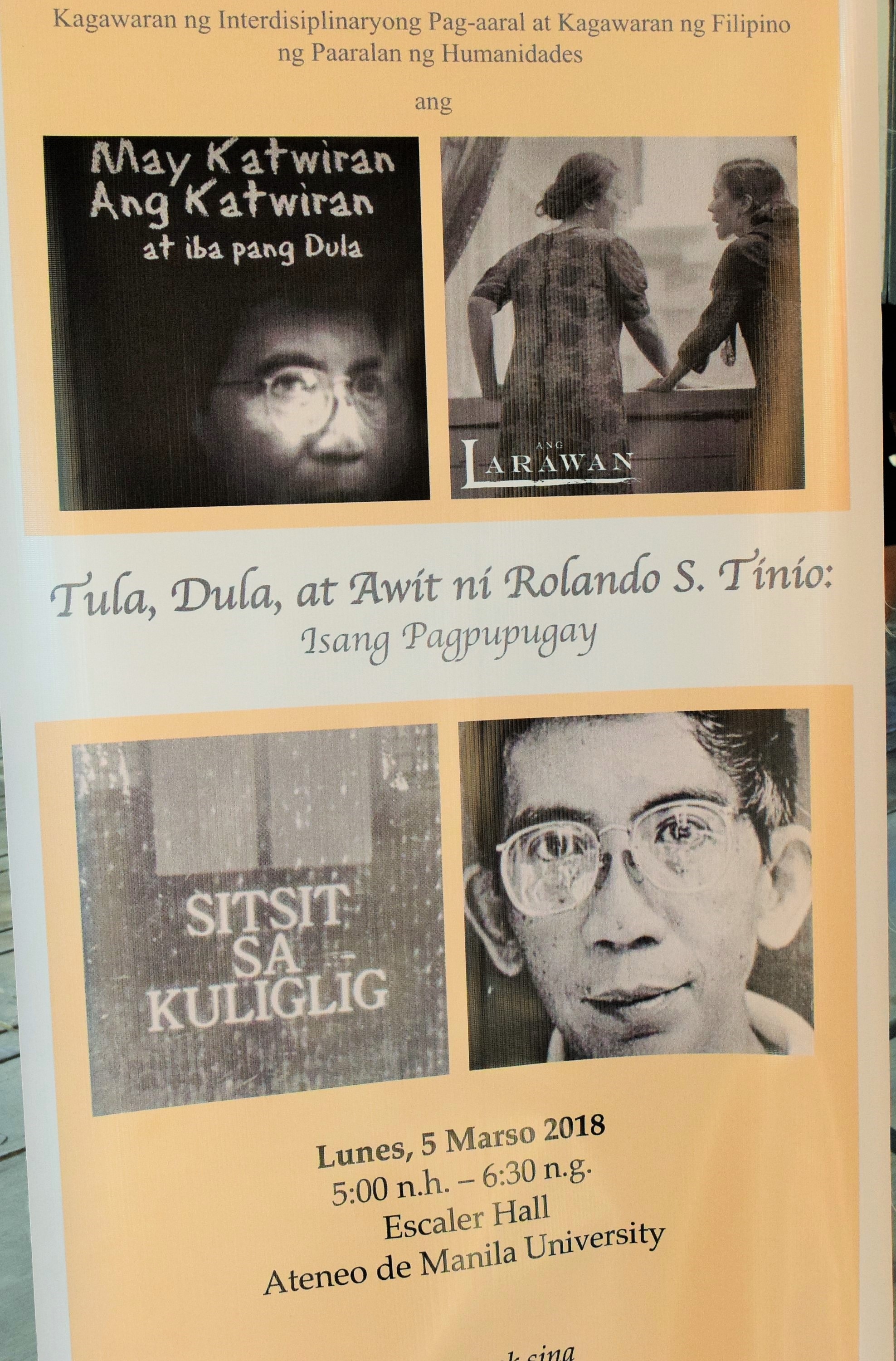

He explored its felicities and frontiers in poetry and drama, he imbued it with the wisdom of world classics through his translations, and he propagated its proper use among scholars (he founded the Ateneo's Filipino Department) and the public, as a dramatic writer and actor. Tinio's reply: his lifelong efforts to advance the Filipino language. Last year, daughter Victoria asked him what his greatest contribution to culture was. His enthusiastic plunge into film acting and scriptwriting after Teatro's closure fulfilled a childhood fantasy, says Mabesa: "Rolando was so happy to finally act with the stars he admired as a child." Religious, well-behaved and gifted through his school years, Tinio graduated with a philosophy degree, magna cum laude, from the Dominican-run University of Santo Tomas - at age 18. He staged most of the works (and handcrafted costumes for them) during his reign as artistic director of Teatro Pilipino, one of the country's top theater companies from 1975, when he founded it at the CCP, until 1994, when he closed it after the death in a car accident of his wife and lead actress, Ella Luansing.Ĭousins and aunts recall how the young Rolando, born in Manila's poor, crime-ridden Tondo district, delighted in organizing and decking out his playmates for costumed celebrations. Tinio gave the trend a boost with his Filipino translations of classic Western drama and opera, from Sophocles and Shakespeare to Ibsen, Chekhov, Puccini and Verdi.

Other groups took up the cause of theater in the national language - the norm by the 1970s.

In the 1960s, Tinio also broke ground with his Ateneo Experimental Theater productions and, later in the decade, with serious drama in Filipino instead of English. The language progressed from "Taglish," a mixture of Tagalog and English, to pure Filipino and back to English. They encompassed social satire, poems of love and everyday life, and poignant confessional verse. Tinio published four seminal books of poems between 19. In poetry, Tinio and his longtime friend, Bienvenido Lumbera, a Magsaysay Award winner for literature, helped modernize the traditionally sentimental Filipino style. Director-actor Antonio Mabesa says he undertook serious theater studies after a 1960s lecture by Tinio. Poet, dramatist, director, actor, set and costume designer, critic, essayist and educator - Tinio's legacy to Philippine literature and theater is immense, both in his published work and stage output, and in the artists, writers and scholars he influenced. "There were occasional outbursts," National Artist for Music Lucrecia Kasilag fondly recalled during the 90-minute evening tribute at the Cultural Center of the Philippines (CCP) on July 14. Even his trademark four-letter words, which had shocked many a sheltered soul were treasured. A motorcade bore his copper-finish coffin from the elite, Jesuit-run Ateneo de Manila University, where the titan of Filipino theater and letters held forth from 1958 to 1975, to the Himlayang Pilipino memorial park near his suburban home, where his children Antonio and Victoria had found him dead after midnight on July 8.Ī heart attack had at 60 stilled the caustic tongue and eloquent pen from which flowed a relentless stream of lectures, poems, plays and essays that a generation of Filipino literati had embraced as little short of divine revelation. But Rolando Santos Tinio was buried on July 16. From Our Correspondent: Hirohito and the WarĪ conversation with biographer Herbert Bixįrom Our Correspondent: A Rough Road Aheadīad news for the Philippines - and some others


 0 kommentar(er)
0 kommentar(er)
